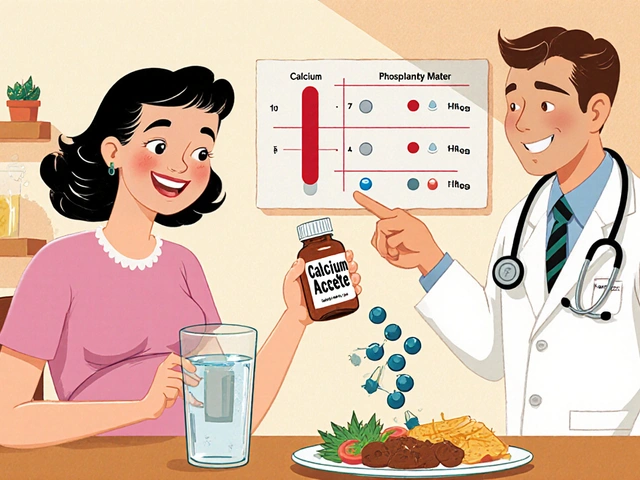OTC Meds: Your Quick Guide to Over‑The‑Counter Drugs
Over‑the‑counter (OTC) medicines are the ones you can pick up at a pharmacy or supermarket without a prescription. They’re handy for everyday aches, colds, or digestive troubles, but they still need a bit of know‑how. This guide walks you through the most common OTC options, when they’re useful, and how to stay safe while using them.
Common OTC Meds and What They Do
Here are a few staples you’ll see on the shelves:
Simethicone – A gas‑relief agent that breaks up bubbles in your stomach. It’s great for bloating after a big meal and works fast without getting absorbed into your bloodstream.
CBD (Cannabidiol) – A plant‑derived supplement that many people use for stress, sleep, or mild pain. It’s not a drug, but it’s still regulated, so look for reputable brands that list third‑party testing.
Acetaminophen (Tylenol) – Your go‑to pain reliever and fever reducer. Stay under the 4,000 mg daily limit to avoid liver damage, especially if you drink alcohol.
Ibuprofen (Advil, Motrin) – An anti‑inflammatory that tackles pain, swelling, and fever. Take it with food to protect your stomach and don’t combine it with other NSAIDs.
Antacids (Tums, Maalox) – Quick relief for heartburn by neutralizing stomach acid. They’re fine for occasional use but not a long‑term fix for chronic reflux.
Each of these products shows up in our recent posts, like the detailed guide on Simethicone for Adults and the look at Cannabidiol and Self‑Care. Browsing those articles can give you deeper insight into dosing and side effects.
Safety Tips When Buying OTC
Even though you don’t need a doctor’s sign‑off, you still want to avoid mistakes. First, read the label. The active ingredient, strength, and recommended frequency are usually listed in big, bold text. If anything looks confusing, a quick chat with a pharmacist can clear it up.
Second, watch for interactions. Some OTC meds can affect prescription drugs, especially blood thinners or blood pressure meds. For example, ibuprofen can raise blood pressure, and antacids can lower the absorption of certain antibiotics.
Third, stick to the recommended amount. More isn’t better—overdosing on acetaminophen or ibuprofen can cause serious organ damage. Use a proper measuring device, not kitchen spoons, for liquid forms.
Finally, keep an eye on expiry dates. A medication past its date may lose potency or develop harmful breakdown products. When in doubt, replace it.
By following these pointers, you’ll get the relief you need without unnecessary risk. If you ever feel unsure, a pharmacist is the best person to consult. They can recommend alternatives, suggest proper dosing, and alert you to any red flags.
OTC meds are a useful part of everyday health care. Knowing what’s on the shelf, how it works, and how to use it safely puts you in charge of your own well‑being. Keep this guide handy, and you’ll make smarter choices every time you reach for that over‑the‑counter bottle.





